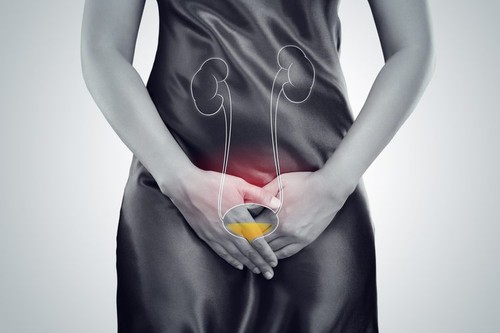Advanced tooth decay is far more serious than many people realise. While early cavities can be treated with straightforward fillings, progressive decay often reaches the point where the tooth structure becomes too weak to save. At this stage, discomfort, infections and aesthetic concerns become difficult to manage without more extensive treatment. Many patients visiting a dental practice already arrive with advanced decay and are searching for a predictable solution that restores both function and confidence.
Understanding Advanced Tooth Decay
It develops gradually when plaque, bacteria and sugars consistently attack the enamel. Poor brushing habits, frequent snacking, dry mouth and a high-acid diet all contribute to the weakening of the tooth surface. If a cavity goes untreated, bacteria progress into the dentine and eventually the tooth’s nerve, creating deeper pockets of infection. At this point, discomfort is only one part of the problem; structural integrity is also severely compromised.
- In many cases, patients assume that painkillers or temporary fixes will help, but advanced decay continues to progress even without constant symptoms.
- The presence of swelling, persistent pain, abscess formation or a foul taste indicates that the infection has reached a critical stage, making some individuals consider dental implants Wimbledon as a long-term replacement option.

Image Source: The Dental Lounges – Wimbledon
When Is a Tooth No Longer Restorable?
If the decay extends beneath the gum line or has destroyed a significant portion of the enamel, even a crown may not be sufficient. In some instances, the internal root structure may be too damaged to support further treatment.
A tooth is often deemed unrestorable when:
- There is not enough healthy structure left to bond a crown
- The root has fractured due to severe infection
- The surrounding bone has become compromised
- Recurrent decay has repeatedly weakened previous restorations
While extraction alone resolves immediate pain, it leaves a gap that affects chewing and contributes to long-term bone loss. This is why many patients consider implant treatment soon after tooth removal.
Why Dental Implants Are Considered a Leading Solution
Dental implants have changed the way missing teeth are replaced. Unlike removable dentures that can slip or cause irritation, implants are embedded directly into the jawbone, creating a solid and natural-feeling foundation. They are designed to replicate the root of a natural tooth, which helps preserve jawbone density and promote stable oral health.
One of the strongest advantages of implants is their ability to function just as natural teeth do. Chewing becomes comfortable again, speech remains unaffected and the restored tooth blends seamlessly with the smile. Patients searching for dependable treatment often choose dental implants because they provide a long-term and highly realistic alternative to traditional replacements.
- A fixed and secure fit
- Protection against bone deterioration
- Stability when biting and speaking
- Reduced strain on surrounding teeth
- A natural and aesthetically pleasing appearance
Unlike dental bridges, implants do not require adjacent teeth to be filed down. This preserves more of the natural tooth structure and supports healthier overall function.
Implant Placement Process Explained
Choosing implants involves a series of carefully planned steps. The first stage is a thorough assessment to determine if the patient is suitable. X-rays or digital scans help evaluate bone density and identify any underlying issues such as gum disease or residual infection.
- The dentist inserts a titanium post into the jawbone, which acts as an artificial root.
- This post needs time to integrate with the bone, a process known as osseointegration.
- Over several weeks or months, the bone fuses securely around the implant, creating exceptional stability.
- This small connector supports the final crown, which is crafted to match the natural colour and shape of surrounding teeth.
- The result is a restoration that looks and feels authentic, supporting daily activities without difficulty.
Key Benefits of Choosing Implants for Advanced Tooth Decay
Implants provide several advantages for individuals whose teeth cannot be saved:
- Strong, fixed stability: No slipping or lifting as experienced with some dentures.
- Jawbone support: Prevents bone shrinkage and facial collapse.
- Enhanced comfort: Feels natural and does not irritate the gums.
- Long-term function: Can last decades with proper care.
For many patients, implants offer the confidence they once had with their natural teeth, making them a preferred choice after severe decay.
Comparing Treatment Options
| Treatment Option | Longevity | Comfort | Suitability for Severe Decay | Maintenance |
| Dental Implants | Very High | Excellent | Ideal | Standard oral care |
| Dental Bridges | Moderate | Good | Depends on surrounding teeth | More complex |
| Dentures | Lower | Variable | Often used for multiple missing teeth | Regular adjustments |
Suitability Factors: Who Can Receive Dental Implants?
Not everyone with advanced decay is automatically suitable for implant placement. A dental practice Wimbledon will typically assess several factors to determine viability. Adequate bone density is essential, as the implant must be supported securely. Healthy gums are another requirement, as gum disease can interfere with healing and long-term stability.
- Lifestyle choices, general health conditions and medication use may also influence suitability.
- Smoking, for example, can slow healing and increase the risk of complications. Patients with controlled medical conditions, however, can still receive implants with the right management plan.
The assessment process ensures that the treatment is both safe and successful, offering long-lasting results for patients needing dependable tooth replacement.

Image Source: The Dental Lounges – Wimbledon
Aftercare and Long-Term Maintenance
After implants are fitted, proper aftercare is crucial. Once the initial healing period passes, patients must maintain good brushing and cleaning habits to keep the surrounding gum tissue healthy. Although implants do not decay, the supporting tissues can still be affected by plaque if oral hygiene is insufficient.
Routine dental check-ups allow practitioners to monitor the implant and ensure that no inflammation or loosening occurs. With appropriate care, implants remain stable and functional for many years, often outperforming other types of restorations in longevity.
Daily maintenance generally includes:
- Brushing twice a day
- Cleaning around the implant with interdental aids
- Regular professional cleaning
- Avoiding excessive biting pressure on very hard foods
These habits help ensure long-term success and comfort.
Conclusion
Advanced tooth decay can significantly affect your comfort, appearance and long-term oral health, but modern treatment options offer dependable solutions. Dental implants are widely regarded as one of the strongest and most natural-looking ways to replace teeth that can no longer be saved. They provide lasting stability, protect the jawbone and restore confident function. Whether you are dealing with persistent pain or have already lost a severely damaged tooth, dental implants can offer a reliable path to recovery. For personalised support, The Dental Lounge is ready to guide you towards a healthier, stronger smile.





